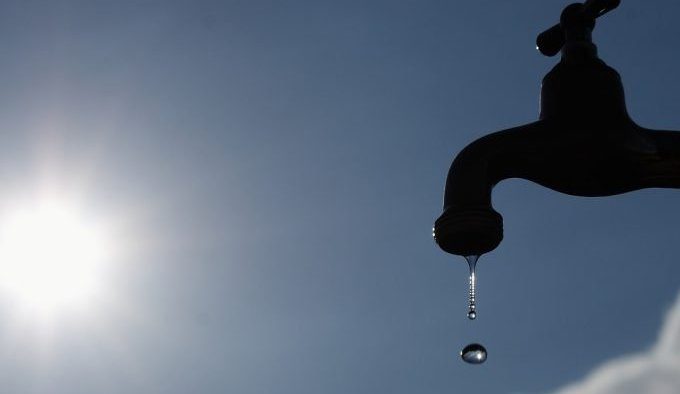The Central Water & Sewerage Authority (CWSA), on Monday, announced service interruptions at nights, adding that shutdowns make also have to occur during specified daytime hours because of drought conditions.
St. Vincent and the Grenadines is among four Caribbean countries experiencing moderate to extreme drought conditions, with others expected to be added to that list soon, the CWSA said.
It said it has been monitoring, over the past months, its supplies with a view to reducing the inconveniences to the public during “this otherwise critical period in our overall public health situation”, and apparent reference to the COVID-19 pandemic.
In order to maintain an adequate daily supply, the CWSA will increase its focus on inter-linking of systems at varying hours where deficiencies in one system can be bolstered by a supply from another.
The CWSA will also be locking down schools that are on vacation to reduce wastage and monitory close storage tanks and intakes using both remote and direct means.
The municipal supplier of water also announced that it will be implementing a system of water rationing from South Leeward through Kingstown to East St. George.
“Of particular interest would be the higher areas in these zones, especially the marginal areas such as Green Hill, Bowood and Upper Largo Heights. In the first instance, service interruptions will be restricted to nights, however very soon thereafter; shutdowns make have to occur during specified daytime hours,” the CWSA said.
The CWSA said the region is now in the middle of the dry season and Caribbean Climate Outlook Forum has declared that SVG, along with Bahamas, French Guiana, and Suriname are experiencing moderate to extreme drought conditions.
Soon to be added to this list are Barbados, Belize, Eastern Cuba, Martinique, St. Lucia and Trinidad and Tobago.
The reason for this designation is primarily due to the significant reduction in rainfall accumulation in these countries since October last year (2019).
In SVG, since October last year, the CWSA has recorded the lowest rainfall accumulation in over a decade, at three of its major sources — Montreal, Majorca and Dalaway — which together supply 70% of potable water in St. Vincent.
At these three sources, rainfall totals are now at 30% below the 10-year average.
In the 2018-2019 period, CWSA recorded an average of 84 inches of rainfall between the October and March period, this 2019-2020 six-month period shows a drop from 84 to 55 inches of rainfall at these sources.
“The situation is virtually the same for the first three (3) months of 2020, where we rainfall totals are now at 25% below the 10-year average,” the CWSA said.
Additionally, last year at Montreal we received a total of 27 inches of rain for the first 3 months while this year, the corresponding figure is 19 inches. Similarly, at Dalaway, the first quarter figures totalled 27 inches in 2019, this year that amount is now at just 20 inches.
“Because RAINFALL is directly related to river flow and consequently to the water available for distribution by the CWSA, all of this means that we have now arrived at a crisis situation in terms of our water supply, where very strict measures are now required to ensure that water can be supplied to every area of SVG on a daily basis.
“Additionally, and unfortunately, the prediction for the next two months is not good and there is a likelihood that the situation can worsen,” the CWSA said.
The statement said that the CWSA will be communicating this rationing schedule to the public on radio and on its Facebook page.
This also means that Consumers will be expected to immediately activate their hurricane preparedness plans in terms of at-home storage. This will require that excess water be stored when it is available to cater for periods of outage.
The CWSA will also be demanding strict water conservation measures to be observed: including no washing of vehicles, watering of lawns and plants and power-washing.
The CWSA also expects the assistance of the public in terms of reporting leaks and incidents of abuse and wastage.
The CWSA has also diverted the selling of water to marine vessels to Barrouallie and Walliabou to reduce the demand on the Dalaway system.






